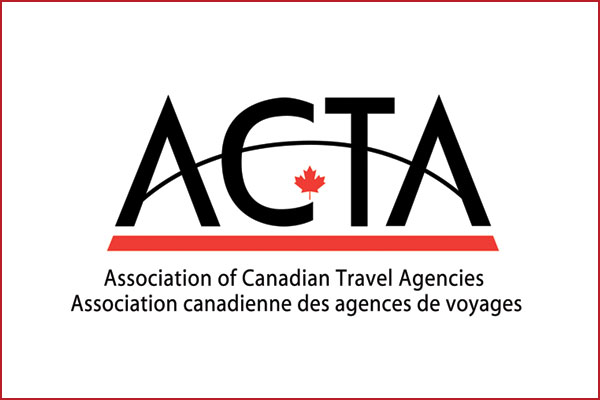Best Practices From ACTA

ACTA has been working with a number of global travel agency associations and its Canadian travel agency members on a range of issues and sharing recommendations.
The association believes that the travel industry will be stronger by working together with more efficient and consistent best practices in place – and is calling on all travel suppliers to get on board.
Over the past several weeks, ACTA has been having regular meetings with the ACTA Board of Directors, the Canadian Corporate Travel Association (CCTA), and senior leaders from consortia, host agencies and ACTA’s 30 largest travel agency members, forming the ACTA COVID-19 Travel Agency Leaders Advisory Committee.
During these Advisory Committee calls, as well as from feedback from our members coast to coast, the association learned of the many challenges faced by members with respect to Future Travel Vouchers, Credit Card Chargebacks and the need for Commission Protection, during this new COVID-19 reality.
It has also been taking part in discussions with the World Travel Agency Associations Alliance (WTAAA), a network of global Travel Agency Association, comparing best practices in other jurisdictions.
ACTA recognizes that travel agents must follow the terms and conditions of suppliers as legally, they are the agents of suppliers. If a supplier has chosen to provide a voucher, ACTA — working with a Task Force from the Advisory Committee — has developed Best Practices recommendations for travel suppliers globally to follow.
Whether it is tour operators, airlines or cruise lines, the challenges are similar for travel agencies having to deal with several different and ever-evolving policies and procedures. And it emphasized that there is a need for consistency where possible.
To that end, ACTA has established a smaller task force to focus specifically on Group bookings as it was revealed that groups have their own unique issues which will require additional consideration and more details on groups will follow soon.
ACTA is calling on all travel suppliers to do the following:
Future Travel Vouchers (FTV)
- Provide travel agencies with written FTV within 14 days of booking cancellation
- Have an expiry date of 24 months from the original travel date
- Be honoured at the same value, at minimum
- Offer any residual value in the form of a credit, or provide as a cash refund
- Not define a particular destination, airline class, category of hotel or category of cruise line
- Allow for transfer to another person or the corporate buyer. The booking agent should be able to access and manage the transferability of the FTV
- Accessible and manageable via the GDS or other booking software
- viii. Issuance and redemption of vouchers should be without additional costs imposed
- Ensure that all policies are the same whether the booking is made direct by the consumer or with a travel agent
- Be refundable upon the term of the expiry date (24 months)
- Advocate to governments to protect FTVs with a federal government guarantee to ensure that consumers will be guaranteed a refund due to the insolvency of an airline, tour operator, cruise line, travel agency or travel related business.
Work to resolve Credit Card Chargebacks as the Merchant
- Do not pass any COVID-19 related credit card chargebacks to the travel agency.
- Do not pass along any Debit Memos as it relates to a COVID-19 credit card chargeback or refund.
- Share relevant information with travel agency to enable them to assist with a credit card chargeback.
Protect and Pay Commission to the Travel Agency
- At the time of deposit and/or when the file is paid in full, regardless of travel date.
- If the travel is rebooked, cancelled or refunded (and definitely if the supplier has retained partial payment).
- On any fees applied
- Respect confidentiality on a travel agent’s mark-up.
Support the Travel Agent with clarity on the details of policy changes and coverage
- Provide documentation in writing and in a format that is in plain language and can be easily shared with consumers.
- Once a policy has been determined, refrain from changing it.
Go to www.acta.ca for more.


